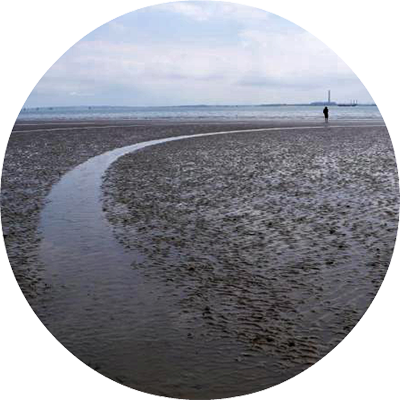Line in the Sand
About Line in the Sand
YoHa will collaborate with local Leigh, Southend-on-Sea fisherman (Cocklers and Coastal), and individuals to plan an ephemeral public artwork that will happen during Summer 2015 a series of messages written onto the shifting mud of the Thames estuary which underlies the flight path to London's airports. The plan is to use local knowledge, resources and ‘man-power’ to choreograph a set of boats to create lines in the sand.
These marks will be made by a long tail engine to create the required shapes needed from where messages – at low tide - may be viewed by thousands of passing aircraft passengers. Tracks left by trawlers are generally 2ft wide and 2 inches deep, in which water fills these lines making them visible from above as the water shimmers in the light. The content of the messages or images will be derived from research into Lost Species.
YoHa will gather suggestions for what we should draw and what messages local people would like to convey to passing aircraft. The proposition of the work is that we can speak louder through acting together by using the situated knowledge contained within our interactions with the estuary. Fishermen have a rich culture but, due to the nature of their enterprise, are largely self educated. They work in dangerous environments and during antisocial hours. This leaves fisherman sceptical of how creativity, art and media can help explore the concerns they have for their livelihood and the environment that makes it possible.
There are 17 holiday destinations from Southend but hundreds of daily flights from Heathrow and other London inbound/outbound flights also fly over the Estuary area. Air cargo is responsible for transporting over 5% of the world’s annual sea catch, and this percentage is growing due to the demand for fresh fish. However, what this means on the ground and in the sea is something quite different for UK industries and fishermen where labour might be cheaper elsewhere. ‘Lines in the Sand’ is a way to express histories, culture and knowledge of fishermen which might also be lost or never expressed.
